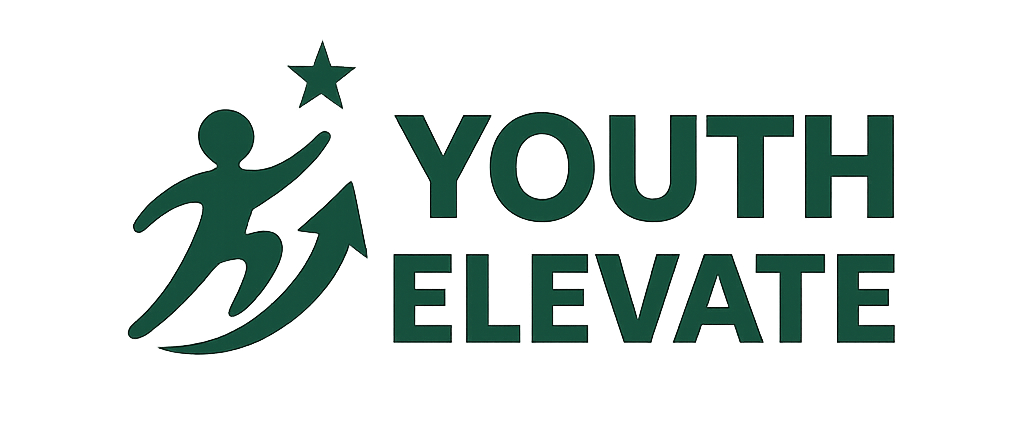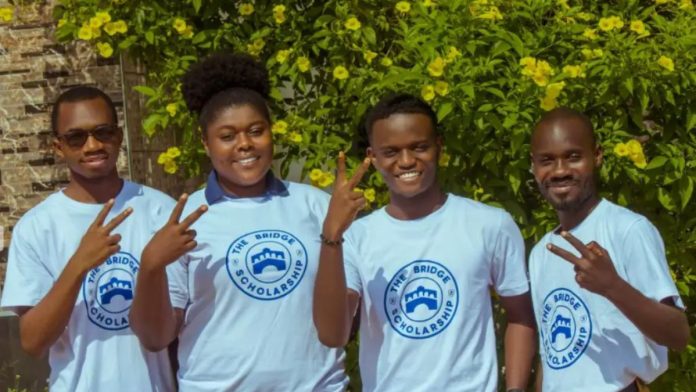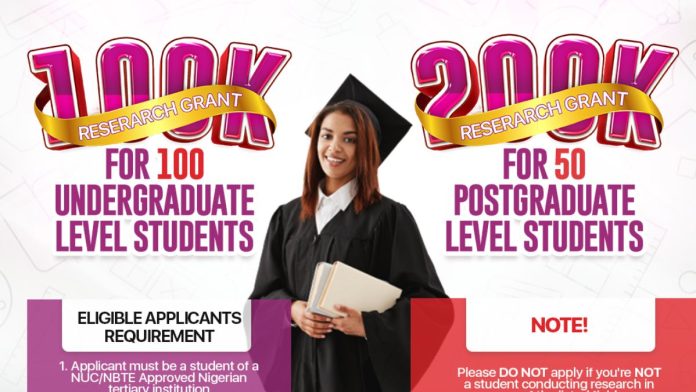The Bridge Scholarship Program for Nigerians 2025 — Complete Guide
The Bridge Scholarship is a full-ride programme that supports high-potential but financially disadvantaged Nigerian undergraduates. This guide explains who is eligible, what the award covers (tuition, accommodation, living stipend and post-graduation support), important dates, required documents, and a step-by-step application walkthrough to help you submit a competitive application.
Quick summary
| Program | The Bridge Scholarship Program |
|---|---|
| Host | The Bridge Foundation / Bridge Scholarship |
| Category | Undergraduate Scholarships (full scholarship) |
| Eligible Country | Nigeria (currently enrolled public university students) |
| Reward | Tuition, accommodation, living stipend, mentorship & career support |
| Deadline | September 12, 2025 |
What is The Bridge Scholarship?
The Bridge Scholarship is a needs-based, merit-sensitive award designed to remove financial barriers for brilliant Nigerian undergraduates. The program aims to identify students with academic promise and leadership potential who are constrained by socioeconomic hardship and to support them through to graduation. In addition to paying tuition and accommodation costs, successful scholars receive a monthly living stipend, mentorship, and access to career development services that continue after graduation.
Why it matters: by combining direct financial support with mentorship and post-graduation assistance, the Bridge Scholarship seeks to convert educational opportunity into sustained professional success — equipping scholars to become future leaders in their communities and fields.
Program objectives
- Make tertiary education affordable for deserving but indigent students.
- Encourage academic excellence and leadership among Nigeria’s youth.
- Provide wraparound support (mentorship, internships, career coaching) to improve graduate employability.
- Break long-term cycles of poverty through education and capacity building.
Who should apply?
The Bridge Scholarship targets undergraduate students who meet three broad criteria:
- Financial need: applicants must demonstrate genuine, critical financial constraints that hinder their ability to continue or complete university education.
- Academic ability: strong performance in coursework with a minimum cumulative GPA (or equivalent) — usually the programme requires a minimum of 3.5 on a 5.0 scale or equivalent (see eligibility below).
- Character & engagement: evidence of resilience, integrity, community service or extracurricular leadership.
If you are a full-time student at a Nigerian public university, maintain a good academic standing, and face significant financial challenges, you are encouraged to apply.
Eligibility — detailed
To be considered, applicants typically must satisfy all of the following (confirm specifics on the official application page):
- Be a citizen of Nigeria and currently enrolled in a recognised public university in Nigeria.
- Be pursuing a bachelor’s degree (full-time) and committed to complete the programme.
- Demonstrate critical financial need — household income or other evidence may be required.
- Have a minimum grade point average (GPA) — the published threshold is often 3.5 (or its national equivalent); check the application for equivalency rules.
- Show engagement in co-curricular or community service activities.
- Provide a signed supervisor or departmental endorsement if requested by the scheme.
Programs and thresholds vary slightly year-to-year. Always read the official eligibility notice inside the application portal before applying.
What the scholarship covers
The Bridge Scholarship is designed to be comprehensive. Typical components include:
- Tuition fees: full payment of approved tuition and mandatory school fees for each academic session for the period of study.
- Accommodation: either payment for university halls or a housing allowance so scholars can live safely and study effectively.
- Living stipend: a monthly allowance to cover food, local transport, study materials and modest incidental costs — the exact amount is published yearly.
- Academic resources: support for books, thesis printing, approved fieldwork or research expenses where relevant.
- Mentorship & career services: one-to-one mentoring, CV building, interview preparation, internship placements and transition support at graduation.
- Retention & success support: periodic performance checks, tutoring or workshops if needed to help scholars remain on course.
When awarded, scholars are usually supported from the point of award until they graduate (subject to maintaining good academic standing and compliance with program rules).
Selection process — what to expect
The Bridge Scholarship selection uses a staged process to ensure fairness and match applicants with resources appropriately. Although exact mechanics vary, a typical flow is:
- Online application screening: initial check for eligibility and completeness.
- Documentation review: assessment of academic record, proof of financial need, and supporting letters.
- Shortlisting: candidates who meet the criteria are shortlisted for interviews.
- Panel interview: a structured interview (in-person or virtual) to assess motivation, resilience and fit for the scholarship mission.
- Final checks & offer: reference and background checks before a formal scholarship offer is made. Offers are conditional on continued academic performance.
Applicants should be prepared to present additional evidence (bank statements, community leader attestations, etc.) if shortlisted.
Required documents — checklist
Prepare digital copies (PDF/JPEG) of the following items in advance. Missing documents are a common reason applications are delayed or rejected.
- Completed application form (online).
- Curriculum Vitae (CV) — 1–2 pages, focused on education, awards, leadership and community service.
- Motivation / personal statement — 500–800 words explaining your academic goals, financial need, and how the scholarship will change your life.
- Academic records — current transcript and any previous certificates (WAEC/NECO/SSCE, JAMB result where applicable).
- Admission letter (for incoming students) or proof of enrolment (for continuing students).
- Three recommendation letters — at least one academic (lecturer/supervisor) and one community/character reference.
- Photo ID — NIN, voter’s card or passport.
- Proof of financial need — family income statement, sworn affidavit, or local authority letter if applicable.
Keep file sizes reasonable (preferably under 5MB per file) and follow the platform’s naming conventions when uploading.
How to write a strong personal statement (motivation letter)
The personal statement is one of the most important parts of your application. Use it to tell your story clearly and persuasively.
- Start with a short opening: one or two sentences that explain your academic focus and your main motivation.
- Demonstrate need: concisely explain your financial circumstances; be factual and respectful.
- Show impact and resilience: describe specific examples where you overcame difficulty or led in your community or school.
- Outline goals: explain how completing your degree will allow you to contribute to your community or sector.
- Close with a clear ask: reiterate why the Bridge Scholarship is essential to your success and what you will commit to in return (e.g., mentoring future scholars, community service).
Proofread carefully and ask a trusted lecturer or mentor to review your statement before submission.
How to apply — step by step
Follow these steps to complete your application. Read the official guidance on the scholarship portal for small differences each year.
- Prepare documents: collect transcripts, ID, references, and financial evidence as listed above.
- Create an account: register on the Bridge Scholarship online portal (use an email you check regularly).
- Complete the form: fill out personal details, academic information and upload required documents.
- Upload your motivation letter & CV: ensure file formats match the portal requirements.
- Submit references: enter referees’ contact details; referees may receive an email with a link to upload their letter directly.
- Review & submit: double-check all fields for accuracy and completeness before final submission.
- Save confirmation: after submission, download or screenshot the confirmation page and note any reference number provided.
- Prepare for interview: if shortlisted, be ready for a virtual or in-person interview within the selection window.
Deadlines are strict. Submit at least 48–72 hours before the closing date to avoid connectivity or verification delays.
Selection interview tips
- Dress professionally and ensure your environment is quiet for virtual interviews.
- Practice answers to common questions: “Why this degree?”, “How will you use the scholarship?”, “Describe a time you overcame hardship”.
- Be honest and concise; interview panels appreciate clear evidence and reasonable plans.
- Have documents handy in case interviewers request clarification on specifics.
Maintaining the scholarship — scholar responsibilities
Once awarded, scholars are expected to comply with programme rules. Typical responsibilities include:
- Maintain the minimum GPA or academic standard specified in the award letter.
- Submit periodic progress reports and participate in mentoring or leadership activities.
- Notify the scholarship office of changes in enrollment or personal circumstances.
- Attend Bridge training sessions, career workshops or community service events when scheduled.
Failure to meet conditions can result in suspension or withdrawal of funding.
Post-graduation support & pathway to employment
A key strength of The Bridge Scholarship is follow-on support after graduation:
- Mentorship: scholars are paired with mentors in industry or academia to guide early career steps.
- Career placement: the program facilitates internships and employer introductions relevant to each scholar’s field.
- Alumni network: graduates join a network that offers ongoing development opportunities and peer support.
This holistic approach increases the likelihood that scholars transition successfully into jobs, entrepreneurship or advanced study.
Common reasons applications are rejected (and how to avoid them)
- Incomplete documentation: always upload every required file in the correct format.
- Poorly articulated motivation: write a compelling, specific personal statement — generic letters perform poorly.
- Lack of proof of need: where possible provide independent verification (local authority, NGO, or bank statements).
- Late submission: submit early; systems can get busy near closing.
- Weak references: choose referees who know your academic work or community contributions well.
Timeline — what to expect after you apply
- Application window closes: all applications must be completed by September 12, 2025.
- Shortlisting & document verification: 2–6 weeks after the deadline.
- Interviews for shortlisted candidates: usually within 6–10 weeks following shortlisting.
- Final offers: typically issued 2–4 weeks after interviews.
- Orientation & on-boarding: successful scholars are invited to an induction and orientation programme before the next academic session.
Frequently Asked Questions (FAQs)
Q — Who can I contact for clarification on the application?
Check the “Contact Us” or “Help” section inside the Bridge Scholarship application portal for official email addresses and response timelines. If available, use the portal’s FAQ first for common questions.
Q — Can final-year students apply?
Yes — final-year students who can provide proof of admission or continued enrolment are usually eligible, but check the application rules for year-specific guidance.
Q — Is the scholarship renewable each year?
The Bridge Scholarship is awarded for the duration of the undergraduate programme on condition that scholars maintain academic and behavioural standards outlined in the award letter.
Q — Can scholars work part-time while on the award?
Policies differ by scholarship administrator and university regulations. Typically, limited part-time work is allowed provided it does not interfere with academic progress — check your award terms.
Related scholarships and further reading
For students exploring similar opportunities and advanced study abroad options, you may find the following articles useful:
- University of Warwick Postgraduate Research Scholarships 2026 — (useful if you plan postgraduate study abroad).
- Rhodes West Africa Scholarship 2026 — (one of the world’s most prestigious postgraduate scholarships).
Final checklist before you submit
- All documents uploaded and clearly named (e.g.,
Lastname_Firstname_Transcript.pdf). - Motivation letter reviewed and proofread by a mentor or lecturer.
- Three referees informed that they will receive a request; contact details entered correctly.
- Financial evidence collated and redacted where needed for privacy.
- Application submitted at least 48–72 hours before the closing date to allow for unexpected issues.
Deadline reminder: Submit your application before September 12, 2025. Late or incomplete applications are typically not considered.











